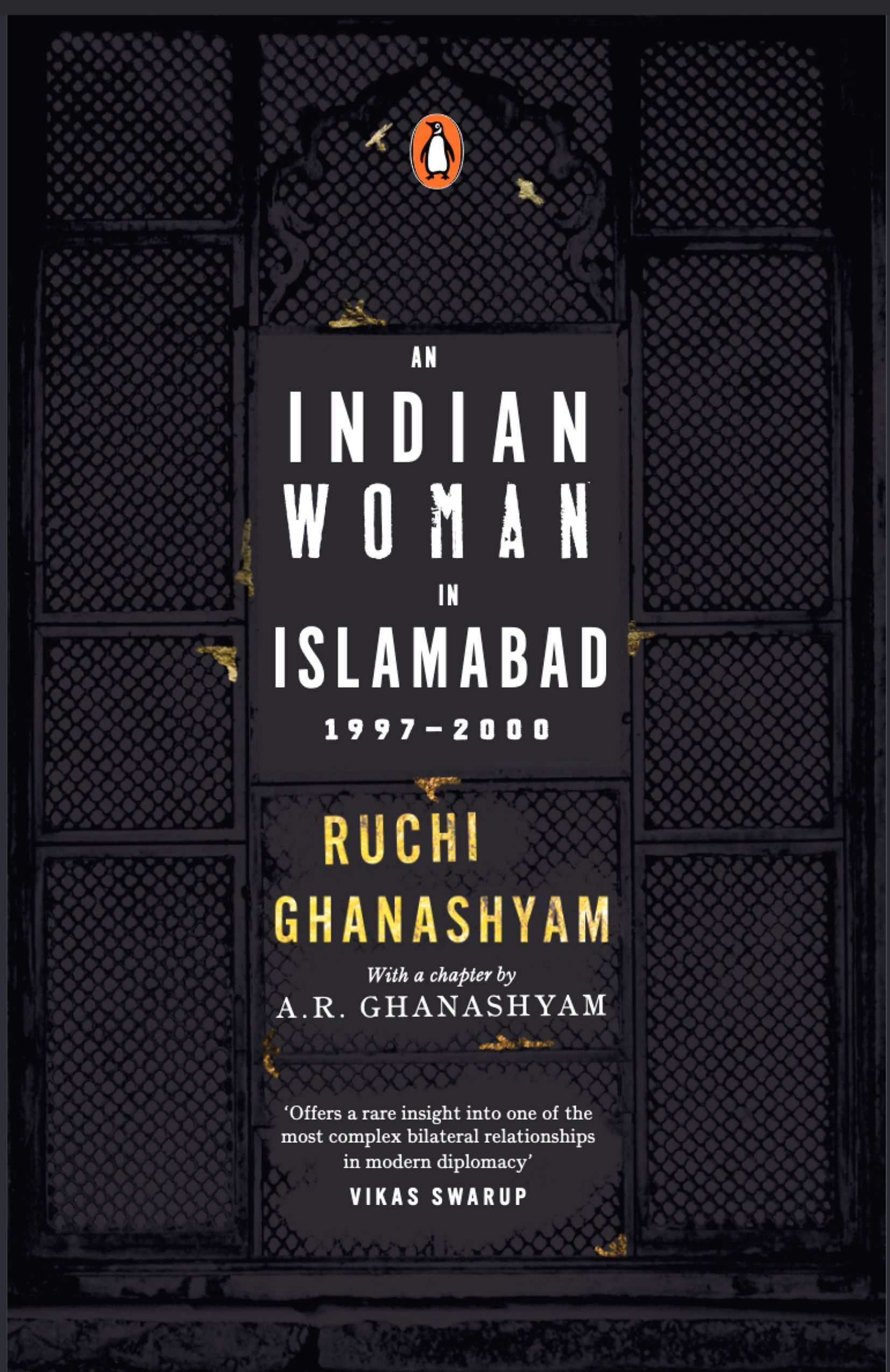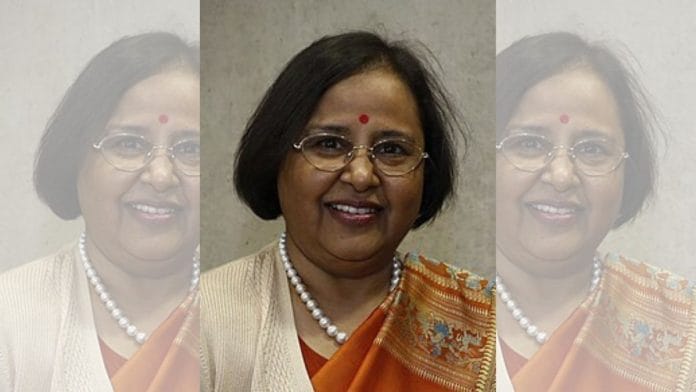Islamabad was the only place where ordinary souls like us could feel a bit like James Bond. At times, I would try and drive into the side lanes to shake off the ‘tail’ or race the car to the next turning to try and disappear before they could catch up. I rarely succeeded. The roads in Islamabad often had no traffic and the agents could see which way the car had turned, even from a long distance. I managed to shake off my tail only on one occasion, when I was going to a tailor’s shop in a market that I did not normally frequent. The triumphant feeling didn’t last very long as five minutes later, the agents reached the market and parked at a short distance from my car. I was left wondering if the Pakistani agencies had such an efficient network across the city that they could trace our whereabouts in minutes!
The presence of the agents came in handy at times. My friends in India would often advise me not to drive around too much in Islamabad. My stock answer used to be, ‘Don’t worry, there’s always someone driving behind. They would have to help me change the tyre in case I get a flat tyre’.
Once in Lahore, our children wanted to eat pizza at Pizza Hut, but the franchise didn’t have a branch in Islamabad those days. We found the address and got the directions, but without a GPS, we were soon lost and driving around in circles. Finally, the agents driving behind us drove up to our car and asked Ghanashyam in desperation, ‘Sir, aapko jaana kahan hai?’ (Sir, where do you want to go?) Our roles were then reversed, and we followed them to the restaurant. We got lost in Islamabad too, one night and the agents following us guided us quietly to our destination.
The presence of the agents behind us turned out to be useful in Karachi once. Ghanashyam was extremely popular with the business community in Karachi, many of whom were Bohra Muslims, originally from Mumbai and Gujarat. They were happy to meet us when we went to Karachi and talk about ‘apna gaon’ (back home). We had taken a big carton of gifts for friends in Karachi, discarding the carton soon after reaching the hotel. We didn’t bargain for the Pakistani generosity and had no place for the return gifts in our small suitcase. When it was time to leave, we needed another bag! Karachi is a typical South Asian city with heavy traffic. Travel time is increased by one-way lanes. Our flight was in a few hours. I asked the driver to take me to the nearest baggage shop. Knowing our departure plans, he took the shortest way to the nearest market, until we reached a point beyond which the road was ‘one way’. A traffic policeman was posted there. The driver was confident and aggressive enough to blow the horn persistently. Finally, the cop came over to the driver and angrily told him to move back. The driver quietly pointed backwards. The cop was suddenly transformed upon seeing the car following us, filled with agents in plain-clothes. He quickly went to the circle, stopped the traffic and gestured for us to go. But for that, we would probably have missed our flight that day!
At times, these situations turned comic. One such occasion was during a visit to Lahore. We were both accompanying High Commissioner G. Parthasarathy and his wife on their official visit to Lahore. The head of our consular and visa wing was also part of the team. One evening, we all had independent programmes as Parthasarathy and his wife had a private invitation. We left the hotel in our separate cars for our respective engagements. The next morning, I came out of the hotel door to call the cars to the porch to go for a meeting. I was surprised to see a familiar-looking man sidle up to me and ask about our counsellor (Visa), ‘Madam, kal raat Behari sahab kahan gaye the?’ (Madam, where did Mr Behari go last night?) I asked him wickedly, ‘Why? Did you people lose him last night?’ He confessed that their car had stalled at a traffic light and by the time they managed to turn the corner, Mr Behari’s car had disappeared. As Mr Behari was driving himself, there was no driver to talk to! The agent needed to file a report about the place of visit, and dared not make a fake entry, in case someone else reported Mr Behari’s presence elsewhere.
The treatment of Indian diplomats in Islamabad was sui generis. One can’t think of another place in those days where Indian diplomats received such attention from the host state and its intelligence outfits or where they faced the risks they did in Islamabad. We had no privacy as the Pakistani agencies listened in to our phone calls and kept a close eye on what we did, where we went or whom we met. We had developed our own little codes for phone conversations. Sometimes, we would fix specific words to tie up our programme later. Other times, we used incorrect timings for our programme over the telephone. The intelligence agents followed specific duty hours. On rare occasions, we would fix our programme on the telephone but leave earlier than planned, just to have a little privacy with our families.
Even the waiters that we called to serve at our gatherings came wearing ‘wires’! On one occasion, the wire slipped out of the waiter’s sleeve as he was serving the guests.
Despite signing a ‘Code of Conduct for treatment of diplomatic/consular personnel in India and Pakistan’, way back in 1992, Indian diplomats continued to face harassment and violence in pursuit of their official work. This ‘Code of Conduct’, I was told, was signed following an assault on a forty-five-year-old Indian police officer, who was forcibly taken away from his home as his protesting father was held back by Pakistani agents. According to reports, he was blindfolded while being taken for interrogation and subjected to electric shocks and vicious blows. Each one of us in the Mission had heard the story of his mistreatment.
During our stay, people were regularly picked up and ill-treated. Dorab, who processed newspaper bills and handled routine files, was taken one day. On his return, he conveyed that he had been made to stand with his face to the wall, arms held up and brutally beaten with a rubber bat. There was little visible injury but for weeks he was unable to sleep on his back or sit in a chair and work. On one occasion the agencies ‘picked up’ Prem, an elderly assistant in the Mission. Our frantic efforts to intercede with the Pakistan foreign office were summarily rebuffed. Coincidentally, a couple of staff members of the Pakistani Mission became uncontactable for a few hours in Delhi the same evening during a shopping trip. Perhaps, the apprehension that they may have been picked up by Indian agencies prompted the quick release of Prem from the Pakistani custody. Prem said later that he had prepared himself for the torture. The agents left the room, apparently intending to return shortly. However, upon return, they just let him go. This probably saved his life; he was elderly and suffered from high blood pressure and diabetes and did not have any of his prescribed medicines with him. Such incidents happened at regular intervals.
Though we laughed, and at times, tried to shake off the tails playfully, the ugly reality was never far from our minds. A nagging sense of anxiety and insecurity was a part of our daily lives. It took a long time after returning to Delhi for us to stop looking over the shoulder for our ‘shadows’.
 This excerpt from An Indian Woman in Islamabad by Ruchi Ghanashyam has been published with permission from Penguin Random House India.
This excerpt from An Indian Woman in Islamabad by Ruchi Ghanashyam has been published with permission from Penguin Random House India.






